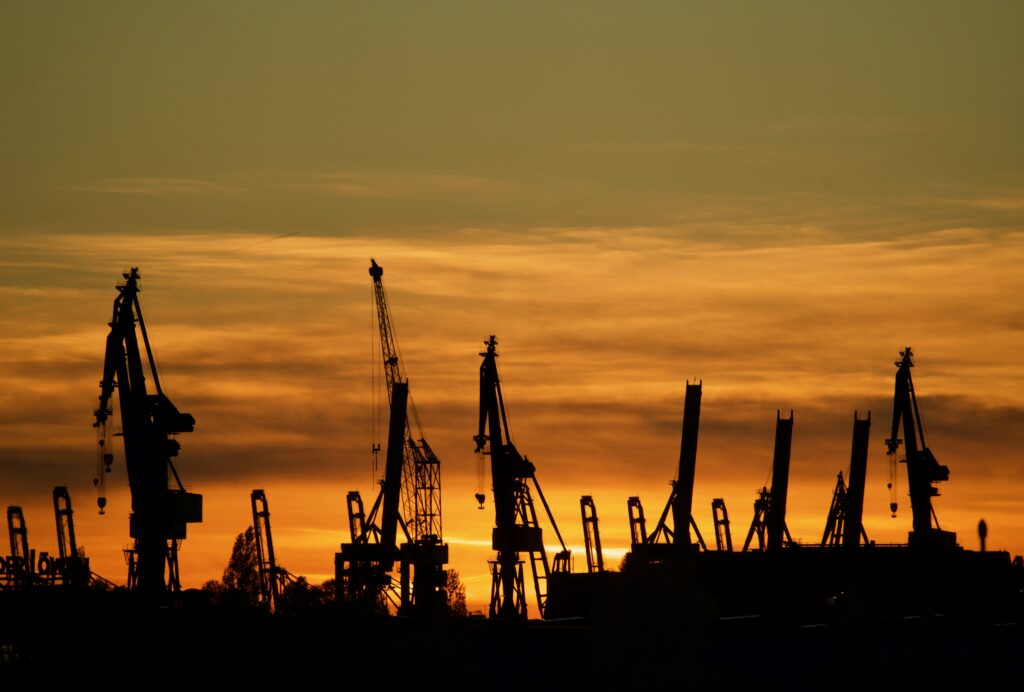Infrastructure
The development of multiple infrastructures is fundamental for the country’s sustainable economic growth. In Brazil, basic infrastructure is undergoing renewal, with significant opportunities in sectors such as transportation, sanitation, civil construction, ports, airports, and highways. However, the regulatory landscape and financing challenges remain significant barriers to the expansion and modernization of existing structures
Infrastructure
The development of multiple infrastructures is fundamental for the country’s sustainable economic growth. In Brazil, basic infrastructure is undergoing renewal, with significant opportunities in sectors such as transportation, sanitation, civil construction, ports, airports, and highways. However, the regulatory landscape and financing challenges remain significant barriers to the expansion and modernization of existing structures

The strengthening of public-private partnerships (PPPs) and the pursuit of new financing models, such as concessions and privatizations, offer an alternative to address the country’s infrastructure investment deficit. The private sector has increasingly been called upon to participate in the modernization and expansion of highways, railways, ports, airports, sanitation, and civil construction
The strengthening of public-private partnerships (PPPs) and the pursuit of new financing models, such as concessions and privatizations, offer an alternative to address the country’s infrastructure investment deficit. The private sector has increasingly been called upon to participate in the modernization and expansion of highways, railways, ports, airports, sanitation, and civil construction
Our take on the industry
The infrastructure sector in Brazil is in constant transformation, with growing demands for projects that meet the population’s needs, particularly in areas such as transportation, sanitation, and civil construction. The country seeks to increase the efficiency of its transportation infrastructure and expand access to basic sanitation, while also needing to modernize the civil construction sector, which is fundamental for urban and housing development.
The need to expand infrastructure in Brazil faces a complex regulatory environment, economic uncertainties, and challenges in attracting both domestic and international investments. Public-private partnerships (PPPs) and concessions are key strategies to make these projects viable in a sustainable and financially feasible manner.
The transportation sector is one of the pillars of this growth, with highways, railways, ports, and airports playing a crucial role in national and international connectivity. Basic sanitation, under the new legal framework, has opened significant opportunities for private investments in historically underserved areas. Furthermore, the civil construction sector continues to be a growth engine, with demands for housing, commercial infrastructure, and large-scale urban projects.
Opportunities
- Expansion of basic sanitation under the new legal framework
- Concessions and PPPs in highways, railways, ports, and airports
- Growth of civil construction projects
- Private financing through concessions and privatizations
- Modernization and expansion of airports and port terminals
- National Health Economic Complex
Challenges
- Complex regulatory environment
- Difficulty in financing large-scale projects
- Attraction of investments in a context of uncertainty
- High costs of maintenance and modernization
- Challenges in environmental licensing
Macrotrends
- Growth of PPPs and concessions
- National Health Economic Complex
- Increasing use of smart technologies in infrastructure
- Integration of sustainable practices in new projects
- Modernization of highways, ports, and airports
- Expansion of sustainable infrastructure projects

Work Highlights
Identifying Opportunities and Challenges in the Brazilian Emissions Trading System
We provide ongoing strategic support to our client to identify business opportunities, regulatory barriers, and the impacts of the carbon market across various sectors, including fuel production
Structuring Guarantees for Concession Modeling
We developed the guarantee structure and payment mechanisms for concession modeling for our client in a project conducted by a multilateral organization. Our work involved creating solutions that ensure the financial and legal security of all parties involved, thereby guaranteeing the success and sustainability of the concession projects
Sensitive and Strategic Environmental Issues
We assist our client with sensitive environmental matters related to a large airport infrastructure project, including contaminated or potentially contaminated areas within leased land, as well as reviewing environmental liability clauses in use concession contracts and preparing legal-environmental audits of the client’s activities and those of its assignees
Work Highlights
Identifying Opportunities and Challenges in the Brazilian Emissions Trading System
We provide ongoing strategic support to our client to identify business opportunities, regulatory barriers, and the impacts of the carbon market across various sectors, including fuel production
Structuring Guarantees for Concession Modeling
We developed the guarantee structure and payment mechanisms for concession modeling for our client in a project conducted by a multilateral organization. Our work involved creating solutions that ensure the financial and legal security of all parties involved, thereby guaranteeing the success and sustainability of the concession projects
Sensitive and Strategic Environmental Issues
We assist our client with sensitive environmental matters related to a large airport infrastructure project, including contaminated or potentially contaminated areas within leased land, as well as reviewing environmental liability clauses in use concession contracts and preparing legal-environmental audits of the client’s activities and those of its assignees




















